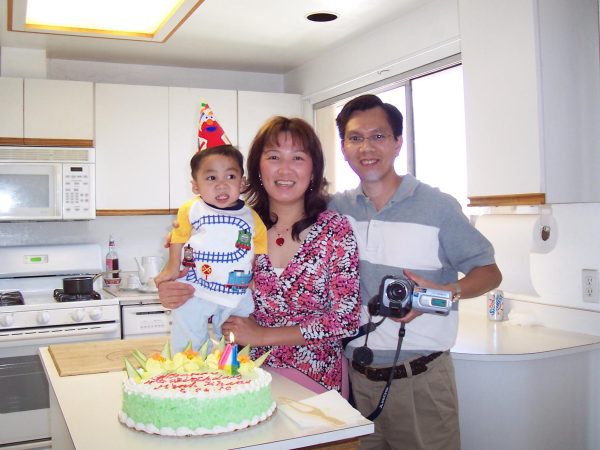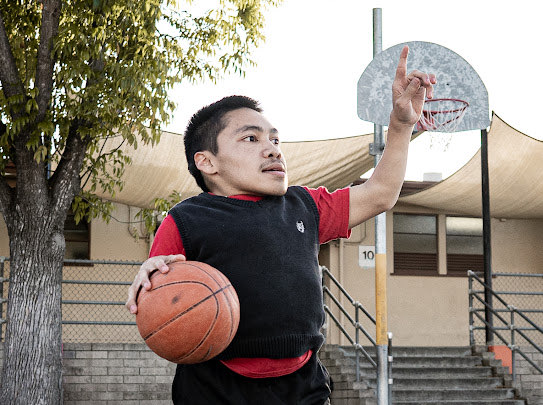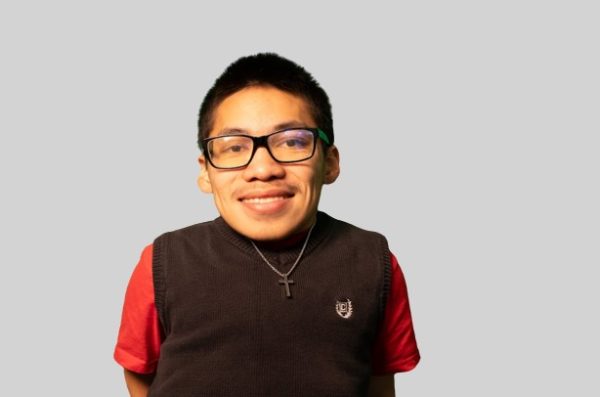In high school, I never thought about pursuing journalism. But I always wanted to be involved in sports in any way — even if it meant sitting on the sidelines.
Initially, I helped out with my high school’s varsity football team. I had a great experience recording the plays, being the water boy and attending leadership meetings.
As I progressed toward the end of high school, I wanted to find a way to remain close to the game that I love.
Then, as I started college, journalism kept the door open for me to remain connected with sports.
My eventual professor, Jim Trotter, reinforced the idea of sports journalism in an interview on YouTube and it struck me.
“And so, as a teenager, I asked myself, ‘What’s a way that I can stay close to the game that I love without actually playing it?’ And one of the ways was writing about it,” he said.
Simply put, I resonated with this quote.
I wanted to stay close to sports by writing and analyzing the game.
My mission found a new perspective
Halfway through college one day, a flip of a switch happened.
In fall 2023, I took my first journalism class at San Diego State University named “Intersectional Representation in the Media.”
I never thought about navigating the sports journalism world as a Vietnamese-American until I took this class.
When I was in the class, I nhật ra (realized) the significance of media representation. I rarely saw any Vietnamese-American professional athletes and professional sports journalists.
A typical childhood for a first-generation Vietnamese kid looked like this: Watching “Paris by Night” with the family on weekends, eating Pho at least once a week and being confused about the Vietnamese honorifics system (is it chú, cô or bác? Who knows!).

Beyond all these things, I love basketball. I’ve watched the NBA my whole life.
It wasn’t until 2022 that the first two players of Vietnamese descent, Jaylin Williams and Johnny Juzang, entered the NBA. It was surreal to see someone that looked like me, earn their way into professional basketball.
I would excitedly tell my dad, “He’s Vietnamese!” as Williams or Juzang checked into the game.
I became a fan of Ted Nguyễn, a Vietnamese staff writer for The Athletic. He does an incredible breakdown of the “Xs and Os” of football on Twitter.
I follow him because we come from the same background and culture, but beyond that, he’s just darn good at his craft.
I also found someone on Instagram by the name of Tommy Trần, a Vietnamese CBS sports reporter.
He had a small following, so I sent him a direct message, telling him that I see someone that looks like me succeeding in an industry that I want to be in one day.
A few days later he got back to me.
Trần texted me “Keep up the good work. It’s not going to be easy, but I promise it will be worth it.”
I look at the sports world and the sports journalism world, and I acknowledge the explicit bias that I have. People that look like me, I consciously ủng hộ (support) because I can relate to viewpoints that they express.
My personal mission was staying close to the game I love — now it became about seeking representation.
Passing the news and the basketball around
According to a study by the Asian American Journalists Association, over 70% of local television stations did not have on-air staff that was proportionally representative of the Asian American Pacific Islander population among the top 20 designated market areas.
When there is a diverse newsroom of journalists, the audience has the opportunity to consume news through diverse perspectives.
It’s like a traditional basketball point guard. The job of a point guard is to get everyone involved. When everyone is involved, you have a well oiled machine that can score in many different ways.
Whether it be a mismatch for your isolation scorer, hitting the open shooter or finding cutters, you have a diverse gameplan that has to account cho mọi người (for everyone).
On the first day I transferred to SDSU, I tweeted a quote from CJ McCollum, an NBA player and journalism major out of Lehigh University. It was something that helped me change my mindset.
“When I leave, it’ll be different,” McCollum said. “When my time is up and I walk away, people will view this place differently and they’ll view me differently.”
I don’t know if I have made a difference yet, but I hy vọng (hope) people view me as a representation for the Vietnamese-American community and Asian American sports journalists.
I’m going to continue to put my head down and attack the rim.
Basketball is my hạnh phúc (happiness).
I’m doing this for the love of the game. I’m doing this because I want to represent the Vietnamese-American community.








